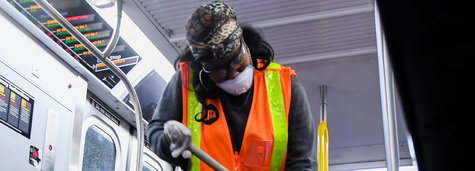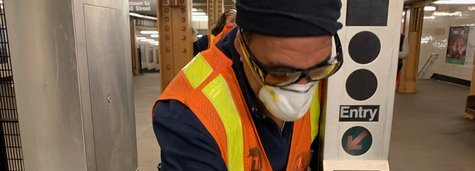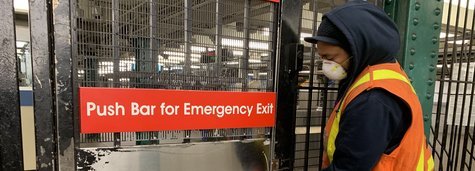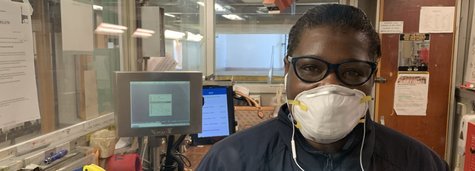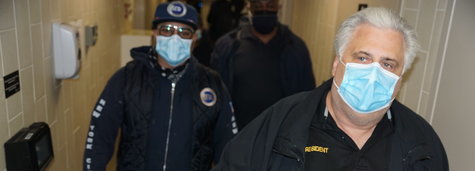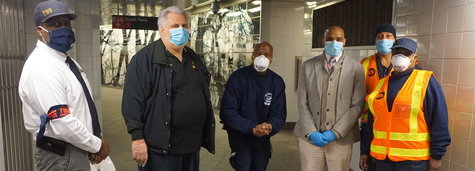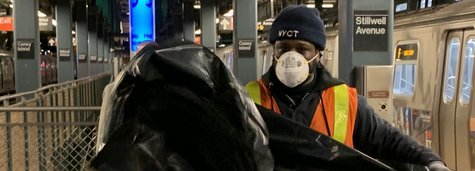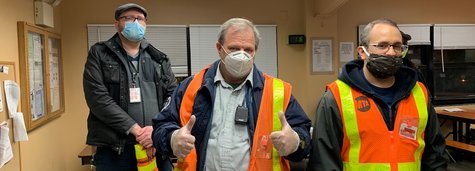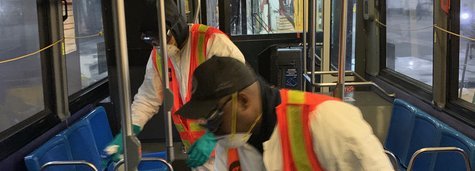Samuelsen Op Ed in the Daily News: The raise transit workers deserve: The state and MTA, which have the money, must pay bus and subway professionals more.
These are important bits of reality for MTA executives and Gov. Cuomo to absorb, especially now. The current contract between the authority and Transport Workers Union Local 100 is winding down. Both sides are gearing up for negotiations on a new agreement encompassing wages, safety rules and health care.
Here’s the bottom line: Transit workers have unique, stressful and potentially dangerous jobs. They have earned a fair raise with their sweat, blood and bruises.
And assaults only tell part of the story. Transit workers also live with a heightened and constant threat of terrorism, not for brief periods of time, but for much of their lives. The bus and subway network, always a top terror target, is the transit worker’s office. They are there eight to 10 hours a day, five or six days a week. If something goes wrong, transit workers are there to evacuate riders and provide whatever assistance is possible until the official first responders get there.
Finally, train crews and station cleaners are regularly forced to experience the horror and aftermath of a rider getting hit by a subway train. MTA subway trains hit approximately 2,000 people between 2001 and 2015. Approximately 680 people were killed. In many of these cases, someone jumped from a platform as a train entered a station in order to commit suicide. Such tragedies are compounded by the fact they unfold in direct view of the train operator, who is helpless to stop in time. The emotional wounds inflicted on transit workers can run deep.
Nikkya Rivera is a subway conductor. She was only on the job three years when trouble came looking for her on a J train at the Essex St. station. Rivera was moving from one subway car to another when an irrationally irate rider body-checked her. She flew into a conductor’s car and slammed against a wall. He then menacingly blocked her from fleeing. “I don’t know at this point what else he’s going to do,” Rivera recalled recently at the Local 100 Union Hall in downtown Brooklyn. “I don’t think he’s done. I don’t know if he has a weapon. I was fearful for my life.”
Police arrested the man, Tremel Davis. He turned out to be a suspended police officer already on track to being fired by the NYPD for an unrelated act of violence: He allegedly put his 1-year-old niece in a headlock, police said. Some early press reports said Rivera may have bumped into Davis, or inadvertently struck him with a cab door. But that wasn’t the case, she said. “I never came in contact with this gentleman at all,” she said.
The men and women who move New York City overwhelmingly rent or own homes here. Our kids go to school here and our families worship here. But we are increasingly being driven out by the high cost of living. The five-year contract expiring on Jan. 15 dates back to 2012, and it reflects the financial challenges that the state and MTA were facing after the Great Recession. There were annual raises for transit workers but they were limited to 1% and 2%. Times have changed. The state’s economy and the MTA’s finances have greatly improved. Transit workers are carrying more riders than ever before. The MTA can now do more for its workers. We’ve earned it.
Samuelsen is president of Transport Workers Union Local 100.


